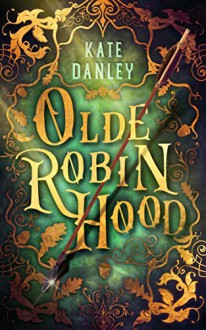
„Der Inquisitor von Askir“ ist ein Zwischenband in Richard Schwartz‘ Epos „Die Götterkriege“, der zwischen Band 4 und 5 angesiedelt ist. Damit folgt der Autor einer Tradition, die er bereits im ersten Zyklus „Das Geheimnis von Askir“ etablierte. Die sechsteilige Reihe wurde ebenfalls um einen Zwischenband erweitert, „Die Eule von Askir“, der zwischen Band 5 und 6 gelesen werden sollte. Ich wusste das damals nicht, was mir nun im Nachhinein große Probleme bereitet. Ich habe „Die Eule von Askir“ bis heute nicht gelesen, weil ich nicht weiß, wie ich das ohne einen Reread der gesamten ersten Reihe bewerkstelligen soll. Glücklicherweise war mir hingegen klar, wie „Der Inquisitor von Askir“ einzuordnen ist und konnte diesen halben Band zum vorgesehenen Zeitpunkt lesen.
Eine aufregende Schatzsuche hatte sich Wiesel anders vorgestellt. Garantiert hatte er nicht angenommen, mit der Suche nach dem Gold des alten Kaisers seine eigene Haut retten zu müssen. Der Meisterdieb steckt bis zum Hals in Schwierigkeiten. 10 Tage vor der Krönungszeremonie seiner Ziehschwester Desina wurde er schlafend neben der blutbesudelten Leiche der angesehenen Bardin Refala aufgegriffen. Wiesel mag vieles sein, doch ein kaltblütiger Mörder ist er nicht. Er wurde hereingelegt. Gejagt von der unbeugsamen Inquisition muss er seine Unschuld beweisen. Er gräbt tief in den uralten Geheimnissen Askirs und entdeckt ein abscheuliches Intrigengeflecht, das Desina vom Thron fernhalten soll. Ihm bleiben nur wenige Tage, seinen Namen reinzuwaschen, die Pläne gegen Desina zu vereiteln und das Rätsel eines Goldschatzes zu lösen, der seit Jahrhunderten als verschollen gilt. Das Schicksal Askirs liegt in seinen Händen.
„Der Inquisitor von Askir“ als Zwischenband zu bezeichnen, ist meiner Ansicht nach nicht ganz korrekt. Er fügt sich nahtlos in den Mehrteiler ein. Die Geschichte, die sich darin rund um den beliebten Dieb Wiesel abspielt, hat durchaus eine Bedeutung für die übergeordnete Handlung der Reihe „Die Götterkriege“ und bereitet kommende Ereignisse und Entwicklungen vor. Ich konnte beinahe hören, wie sich die Rädchen knirschend auf ihre Position drehten und somit den bald bevorstehenden Showdown einläuteten. Vermutlich qualifiziert sich „Der Inquisitor von Askir“ nur deshalb nicht als vollwertiger Band, weil Havald, Leandra und Serafine maximal in der Peripherie auftauchen und Wiesel, der bisher als charmante Nebenfigur etabliert wurde, das gesamte Rampenlicht erhält. Ich fand diese Verschiebung der Perspektive großartig. Die Protagonist_innen der Reihe sind sympathisch, doch ich war immer der Meinung, dass sie, pardon, alle einen Stock im Hintern haben. Wiesel hingegen ist locker, lässig, unbeschwert und herrlich humorvoll. Er spielt mit seinem Image des gewitzten, dreisten, bis an den Rand der Arroganz selbstbewussten Diebes, wird oft unterschätzt und kann doch nicht völlig verbergen, dass er erstaunlichen Tiefgang besitzt. Ich mochte es, in seine Emotionen und Denkmuster einzutauchen und sehe in ihm einen prototypischen Robin Hood, der auf seine Art versucht, Askir und seine Schwester Desina zu unterstützen. Die Lektüre hat wirklich Spaß gemacht; ich habe gern Zeit mit Wiesel verbracht. Außerdem erscheint mir Richard Schwartz in „Der Inquisitor von Askir“ zu seinen Wurzeln zurückzukehren. Der Aufbau der Handlung erinnerte mich stark an den allerersten Band „Das Erste Horn“, weil dort ebenfalls nach einem Mörder gefahndet wird. Natürlich mutiert diese Ausgangssituation schnell. Schwartz verkompliziert Wiesels Ermittlungen im Fall der getöteten Bardin Refala durch zahllose weitere Komponenten und wie immer verzettelt er sich soweit, dass das Gesamtkonstrukt unübersichtlich wirkt. Es war schwierig, ihm ununterbrochen zu folgen und ich muss gestehen, dass ich mittlerweile abschalte, sobald die Verwandtschaftsverhältnisse der Figuren zur Sprache kommen. Ich lese einfach drüber, da ich die Hoffnung aufgegeben habe, zu erfassen, wer da jetzt mit wem verwandt und/oder verschwägert ist, wer wiedergeboren wurde oder wiederauferstanden ist und warum sich Charaktere, die seit Jahrhunderten tot sein müssten, bester Gesundheit erfreuen. Stattdessen konzentrierte ich mich voll auf die Suche nach dem Schatz des alten Kaiserreiches, die ich erfrischend abenteuerlich und äußerst spannend fand. Askir verbirgt viele Geheimnisse – dieses ist sicherlich eines der interessantesten und verfügt sowohl in der Vergangenheit als auch in der Gegenwart über eine politische und wirtschaftliche Ebene. An dieser Stelle muss ich Richard Schwartz zu Gute halten, dass er sein Universum durch ein komplexes ökonomisches System bereicherte, das der Realität gar nicht so unähnlich ist. Selbst Askir folgt bis zu einem gewissen Grad den Gesetzen des gierigen Kapitalismus, wodurch sich die Rolle der Inquisition klarer herauskristallisierte. Dumm nur, dass sie jetzt ausgerechnet hinter Wiesel her ist.
Ich freue mich unheimlich, für einen Band von „Die Götterkriege“ endlich 4 Sterne rausrücken zu können – auch wenn es sich „nur“ um einen Zwischenband handelt. Bisher hatte ich das Gefühl, mich sehr anstrengen zu müssen, um mich von den negativen Aspekten dieses Zyklus nicht entmutigen zu lassen und weiterhin daran zu glauben, dass sich das Lesen irgendwann lohnen wird. „Der Inquisitor von Askir“ ist nun nicht der große Knall, der all meine Knoten platzen ließ, aber er lockert die Handlung der Reihe deutlich auf, weil das Buch von der grundlegenden Attitüde des Protagonisten Wiesel geprägt ist. Obwohl Richard Schwartz es wieder einmal übertrieb und die Geschichte komplizierter gestaltete, als sie hätte sein müssen, genoss ich die Lektüre und hoffe, dass Wiesel in den Folgebänden etwas mehr Freiraum erhält, um eine Alternative zu den sonst sehr ernsthaften Figuren der Reihe anzubieten. Es wird Zeit für ein wenig Leichtigkeit in „Die Götterkriege“.


 Log in with Facebook
Log in with Facebook 












